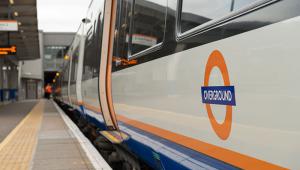26 October 2001
Kiley called for Transport for London to become a regional transport authority in partnership with the Strategic Rail Authority and take over the franchises on lines used by the 500,000 commuters who travel daily into the capital by rail.
Addressing the Commons transport committee on October 24, Ken Livingstone's transport supremo argued: 'As almost 60% of rush-hour Tube users start their journey on a train, it makes incredibly good sense that there is one entity that oversees the interface, so you can get more information to passengers.'
Kiley called for a cull of the 12 commuter rail franchisees left by 'the debris of Railtrack'. He said: 'The number is ungainly and very difficult to manage. If you look at some of our sister cities, Paris and Berlin for example, they all have at most three Metro services. If you get beyond that, you get the beginning of a management nightmare.'
He added that common marketing, branding and ticketing would be a 'dramatic jump forward from where we are now'. Kiley said the national model for rail infrastructure had been 'discredited' and other cities could benefit from the regional system he was advocating for the capital.
He pointed to the success of the Docklands Light Railway. Transport for London owns the infrastructure of DLR, which he described as 'the most reliable rail service in the UK'.
Kiley gave a guarded welcome for the government's preferred vision of Railtrack's successor as a not-for-profit organisation run on commercial lines but without shareholders. 'I do not know of a better model at the moment,' he said.
In his written evidence, Kiley listed ten main objectives for London's rail network. These included the integration of fares between national and metropolitan services, improved accessibility and an immediate start for projects such as the East London Line Extension and Crossrail.
But the Health and Safety Executive intends to press charges under the Health & Safety at Work Act 1974.
PFoct2001


















